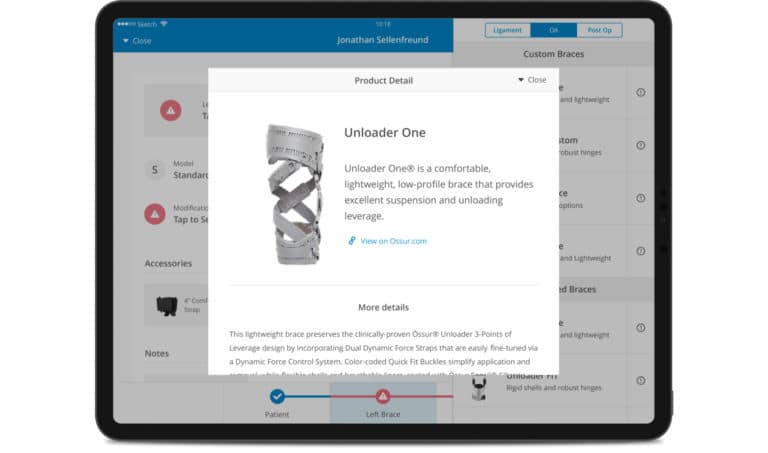Let’s meet in person!
Secure your personal meeting slot today — let's connect and discuss opportunities!
29-31 July. Dublin, IE
01-02 August. london, uk
Petro Diakiv,
Delivery Manager
at RELEVANT SOFTWARE
How to Speed Up Your Software Development: 11 Tried and True Tips
Let’s be real, can you name a business that isn’t interested in faster software development? Or a client who doesn’t care about meeting the release date? We haven’t come across any, and it’s no surprise why.
We’ve had the privilege of working with many IT organizations urgently needing to accelerate their time-to-market and increase profits. As a software development company with a strong history of delivering solutions quickly, we have been able to support them in meeting their goals. So if you’re looking to speed up your software development process, you’ve come to the right spot!

200+ companies from 25 countries outsourced software development to Relevant
We provide companies with senior tech talent and product development expertise to build world-class software. Let's talk about how we can help you.
Contact usThis article will focus on our tried-and-true techniques to kick your software development into high gear. So buckle up because we’re about to take you on a ride through the ins and outs of speeding up software development while maintaining top-notch quality.
Table of Contents
What Software Development Speed Depends On?
In the whirlwind world of software development, understanding the factors that impact development speed can make all the difference. So, let’s dive into the key components that can either propel or hinder your project’s progress:
Development process complexities
While navigating the labyrinth of software development, teams face various challenges, from intricate software architecture and third-party integrations to ambiguous project requirements and tight deadlines. The more roadblocks a team encounters, the harder it becomes to deliver the desired outcome promptly.
Code quality
Striking the perfect balance between high-quality code and tight deadlines can feel like walking a tightrope. While cutting some corners might be inevitable, compromising code quality can backfire in the long run. After all, fixing errors and refactoring down the line can be far more challenging and costly than doing it right the first time.
Team size
Having a big team may seem like a good thing in software development, but it can actually hinder your project’s progress. With more people involved, communication becomes more complex, and coordinating schedules, managing expectations, and ensuring everyone is on the same page can be time-consuming and tedious. Additionally, a large team can lead to misaligned objectives, varying experience levels, and communication gaps, resulting in confusion and a lack of focus.
Human factor
Software development is a field where the human factor can significantly impact project progress. Despite having a talented development team, human limitations can cause various challenges. One significant challenge is the potential for human error, which can result in delays, rework, and added costs. Burnout is also a risk as developers can become overwhelmed, leading to a decline in productivity and project delays. Incorporating feedback and changes can also be time-consuming and further delay project delivery.
There are numerous factors that can slow down the software development process, and the ones we’ve discussed so far are just the tip of the iceberg. Identifying and addressing these potential obstacles is essential to ensure your project stays on track and achieves its goals.
Comparing Different Approaches to Faster Software Development
In software development, speed is often the name of the game. But how do you determine which way best accelerates your projects while maintaining quality? So, let’s explore the different approaches to fast software development and find the one that suits your team’s unique requirements.

Sprint vs. Marathon Mentality
The sprint and marathon represent two distinct approaches to software development, each with its own merits and challenges.
The sprint mindset focuses on short bursts of intense effort aimed at delivering quick results. By taking this approach, teams can make significant strides forward and have the agility to tackle urgent challenges promptly. However, the sprint mentality may also result in burnout, as developers may struggle to maintain such a high-energy pace for extended periods.
In contrast, the marathon mentality emphasizes a steady, consistent pace for sustained success. This approach fosters long-term progress, allowing developers to focus on the bigger picture and cultivate a deep understanding of the project. While the marathon mindset promotes a healthier work-life balance, it may sometimes struggle to deliver immediate results or adapt quickly to changing requirements.
Striking the perfect balance between these methods can lead to time-efficient development without sacrificing quality or overwhelming your team.
Agile Methodology
Agile is a flexible software development process that prioritizes customer satisfaction, collaboration, and continuous improvement. Rather than sticking to a rigid, sequential plan, Agile teams divide projects into smaller, more manageable tasks called sprints. Typically lasting a few weeks, each sprint concludes with a deliverable product increment.
Open communication is a cornerstone of Agile methodology, with daily stand-up meetings and regular feedback loops keeping everyone on the same page. This level of openness enables teams to quickly adjust to evolving needs, guaranteeing that the end result satisfies the customer’s expectations.
By focusing on continuous delivery and improvement, Agile methodology helps software development teams maintain a high level of quality while speeding up the development process. Embracing this fast technique in software engineering can lead to more efficient, effective, and satisfying software development experiences for both teams and customers. If you’re interested in learning more about the Agile methodology, we have an article available for you.
Lean Approach
Drawing inspiration from manufacturing principles, the Lean methodology aims to improve the development process by cutting out the clutter and putting the spotlight on elements that deliver the greatest value to customers. This approach is all about continuous improvement, as teams actively analyze and fine-tune their workflows to pinpoint and tackle any roadblocks or inefficiencies.
By adopting a “build-measure-learn” feedback loop, the Lean methodology empowers teams to make rapid iterations of their products and swiftly adapt to evolving requirements. This iterative process ensures that the final product is in sync with the customer’s needs and expectations.
At its core, the Lean methodology promotes a thriving work atmosphere that emphasizes sustainable development practices and cuts down on redundant tasks. By honing in on efficiency and value, you can accelerate your software development process without jeopardizing product quality or your team’s well-being. It’s easy to see why a multitude of software development teams are attracted to the Lean way of working.
How to Accelerate Your Software Development Process Without Wearing Your Devs Out
Sometimes, there are factors in software development, like a project’s scope and timeline, that you just can’t change. But rest assured, even in such a case, you don’t have to sacrifice quality or your team’s well-being. By adopting our tried-and-true approach to software development that focuses on both speed and quality, you can make sure you deliver top-notch software right on schedule. So, let’s jump in and explore how to make this happen.
1. Establish Clear Development Standards
You might be surprised how many informal best practices exist within software teams. Some of these “unofficial rules” may change or vanish altogether when formalized. Creating development standards through consensus or expert consultation is essential, ensuring they’re documented, agreed upon by all teams within your organization, and consistently enforced at all levels.
Emphasize coding documentation and code review processes within these standards. After all, insufficient documentation hinders accountability and makes tracking progress challenging.
2. Work with small teams and small components
Completion time hinges on factors like complexity and the number of dedicated developers working on the project. However, this relationship isn’t always linear. In truth, adding more programmers doesn’t guarantee faster development. A smaller team of skilled developers might outperform a larger group of less experienced ones. Moreover, large teams can face communication and task allocation challenges without proper management.
In our view, the best approach is to split sizable projects into manageable subtasks. Assign these tasks to self-sufficient teams and employ an agile development method emphasizing small components and team structures. This strategy results in efficient, cohesive teams that excel in their work.
3. Limit your work in progress (WIP)
Juggling multiple tasks might seem like a great idea at first, but not every team member can strike gold when multitasking. In fact, an inexperienced developer might inadvertently make one or two mistakes when attempting to handle various tasks simultaneously. If you’re not keeping a close eye on your team, productivity may take a nosedive as backlogs start to climb.
A surefire way to keep your work in progress in check is by harnessing the power of a “Kanban board.” This robust tool caps the total number of tasks per column, ensuring that your team efficiently wraps up pending jobs before moving on to new ones.
4. Leverage the Lean approach
Adopting a Lean approach to software development involves maximizing development time and resources, minimizing waste, and concentrating solely on essential product elements. This approach allows for more frequent feedback loops and early detection of potential issues, leading to faster delivery of high-quality products. Armed with this information, you can make necessary adjustments while development progresses and properly manage the development process.
5. Avoid technical debt
Technical debt is a deliberate choice to opt for a suboptimal solution to accelerate the software development process. Done strategically with a plan to address it later, it may not necessarily be a negative thing. However, if technical debt is not managed properly, it can lead to system complexity and significant issues down the line. While it may seem like taking shortcuts will save time in the short term, it can actually cause more problems in the long run. Therefore, it’s always better to write proper code from the start whenever possible to avoid accumulating technical debt.

6. Automate as much as you can
Automation is your best friend when it comes to speeding up software development. By automating tasks that would usually be done by hand, your team can zero in on more intricate work while minimizing the risk of mistakes or holdups. Here are a few areas where automation can truly shine:
- Automated Testing: We all know testing is necessary for software development, but it can be time-consuming and leave room for human error. That’s where automatic testing tools step in – they’ll help your team identify issues faster and more accurately, cutting down on manual testing.
- CI/CD Pipeline: Continuous Integration and Continuous Deployment (CI/CD) pipelines can greatly benefit software development. They automate the process of building, testing, and deploying code changes, which means your team can release new features more quickly and confidently since each change gets tested automatically. By the way, if you’re looking to hire a skilled CI/CD engineer, you can find them at Relevant.
- Workflow Automation Tools: These tools can streamline many development tasks, from issue tracking and project management to code review and software release process. By automating those repetitive or time-consuming tasks, you’re giving your team a chance to be more productive while lowering the risk of errors.

7. Invest in skills and experience for better software development
You might be familiar with the phrase, “There’s no such thing as a free lunch.” Well, in the world of software development, investing in your team’s skills and expertise truly pays off. By providing continuous learning and development opportunities, you make sure your team stays ahead of the curve with the latest tech and tools. As a result, they’ll work more efficiently, leading to faster development times and top-quality output.
8. Use short-term boosts to increase motivation
Consider offering incentives or perks for hitting specific goals for a quick boost in motivation. It’s all about that “carrot and stick” approach – a little reward can motivate your team to work harder. Fun team-building activities, social events, or even a surprise pizza party can also help reduce stress and boost morale, leading to more productive work.
9. Eliminate waste and non-value-added activities
In software development, trimming the fat and ditching non-value-added activities can be a game changer. You know what they say, “Less is more.” Eliminating unnecessary tasks empowers your development team to zero in on what’s truly essential – accomplishing their goals. This way, they can dedicate their energy to the core development tasks rather than being bogged down by trivial matters. What’s the result? A more streamlined workflow, reduced time and effort spent on each assignment, and ultimately, quicker development times and exceptional software quality.
10. Balance work and life
To avoid burnout and maximize productivity, it’s crucial to promote a healthy balance between work and personal life. As the saying goes, “All work and no play makes Jack a dull boy,” and it holds true in practice. Taking breaks and engaging in non-work-related activities is essential for recharging your batteries and avoiding the negative effects of overworking.
11. Expand your team
At times, a project’s deadline may not align with its scope, prompting the need for additional resources. The straightforward solution? Extend development teams to handle the increased workload.
Are you looking to hire remote engineers and learn the ways how to develop software faster? The stars are aligned. Relevant specializes in providing staff augmentation services to help you acquire specific talent or even an entire team for your desired duration.
Our team handles the entire recruitment process, from sourcing top talent to onboarding and management, allowing you to focus on your software development goals. With our expert guidance, you can build a high-performing remote team that delivers quality results and meets your business needs.

Final words
Looking for a software development partner who really gets you and can deliver top-notch solutions? Reaching out to Relevant is a great decision, and here’s why:
- Expertise: Our team is packed with seasoned pros who stay up-to-date with the latest technologies and best practices. You can trust that your project will be in good hands, receiving the first-class attention and expertise it deserves.
- Customization: We’re not proponents of the one-size-fits-all mindset; instead, we craft customized strategies designed specifically to align with your objectives. This way, we guarantee that your project will meet and exceed your expectations.
- Communication: When you choose to work with us, you can expect nothing less than an open line of communication and a truly collaborative atmosphere. Our team is dedicated to maintaining a strong partnership with our clients, ensuring that every step of the process is transparent and inclusive.
- Speed and Quality: We strike the perfect balance between rapid development and top-notch quality, so you can enjoy the benefits of accelerated software development without sacrificing product excellence.
- Proven Track Record: We’re really proud of our track record, boasting an impressive portfolio and a long list of happy clients. We’re all about driving your business forward and keeping you ahead of the curve in your industry.
So, seriously, what’s holding you back? Reach out to us, and let’s start crafting something extraordinary together.
FAQ
Our core services:
Do you want a price estimate for your project?
Do you know that we helped 200+ companies build web/mobile apps and scale dev teams?
Let's talk about your engineering needs.
Write to us











